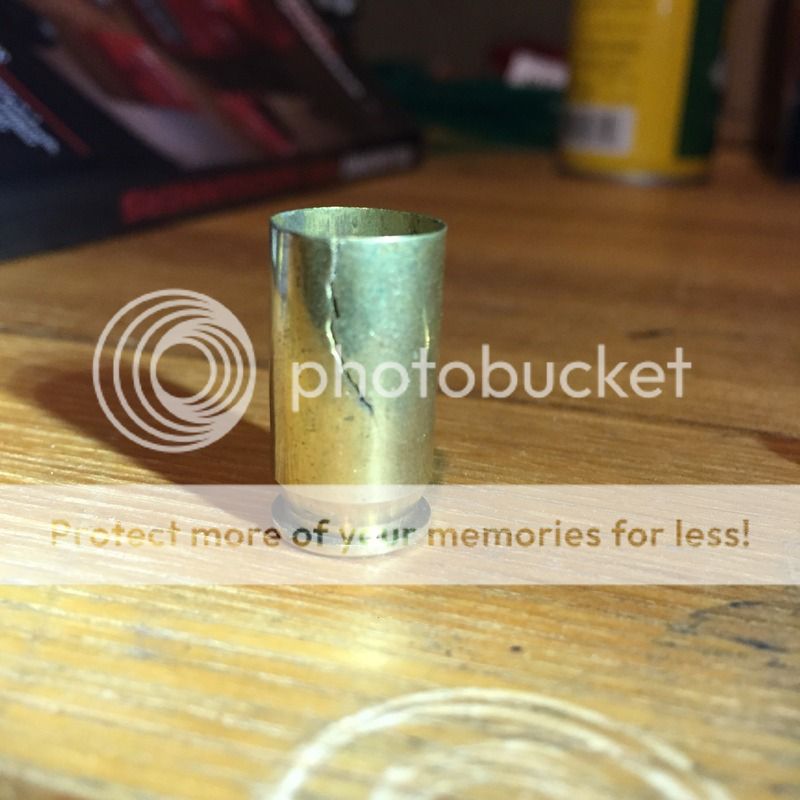While reloading some 45 auto tonight I was using a technique I had read about in my reloading book. It states to kind of move a bunch of cases around in your hand and get used to the sound so when something isn't right you'll hear it. Well sure enough I heard something that didn't sound right and low and behold a cracked case. So just figured I'd post this up and say be careful because they can certainly slip by.



![Wink [wink] [wink]](/xen/styles/default/xenforo/smilies.vb/002.gif)
![ROFL [rofl] [rofl]](/xen/styles/default/xenforo/smilies.vb/013.gif)